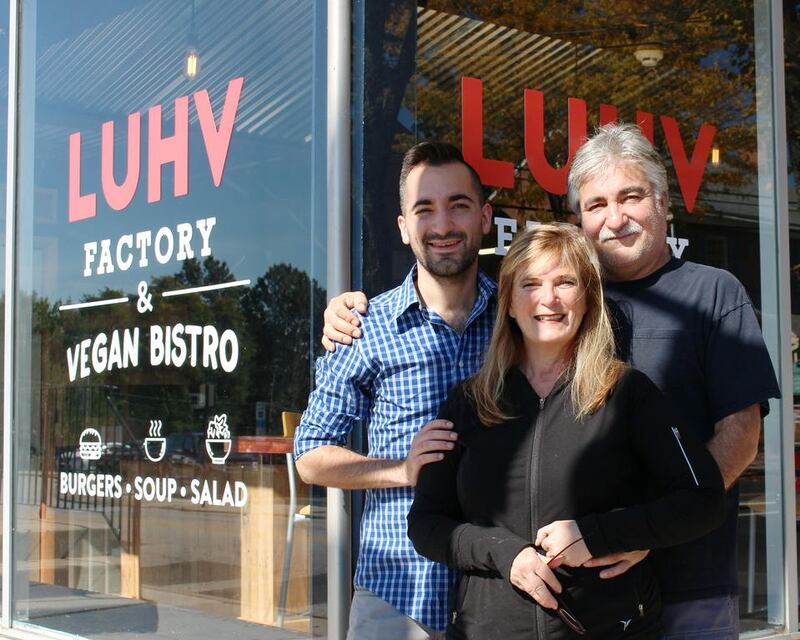NEW YORK // Silvia Lucci and her chef husband Daniel were living the American dream. Business was booming at their cosy dining room serving Argentine-inspired food so they remortgaged their home and sank all their savings into an ambitious new 200-seat restaurant.
Then came the Great Recession at the end of 2007. Customers dwindled and the Luccis laid off staff and stopped paying their health insurance as they tried to cope with a mountain of bills. They filed for bankruptcy in 2012 when they ran out of savings.
Rock bottom came when bailiffs arrived at their home. Mrs Lucci, a 52-year-old mother of four, suffered a stroke and collapsed.
"It's easier to talk about it now," she said, her voice cracking at the memory. "It was ugly. You have kids, the neighbours ... For a long time I was broken."
The family's downfall and gradual recovery illustrates the rocky road America has followed during the past decade, with lessons for this year's presidential election.
By some estimates, almost nine million jobs were shed as the US economy collapsed in a chain reaction triggered by a crisis in the complex, under-regulated subprime mortgage market.
It affected families like the Luccis - who had emigrated from Argentina two decades earlier - and cast a shadow over American politics for almost a decade.
The family only managed to keep their home, in one of Pennsylvania's wealthy "collar counties" surrounding Philadelphia, because it had lost so much value after the property market collapsed.
Now back on their feet after reopening their original family restaurant and launching a new business making vegan burgers and soups, the Luccis' story cuts to the choice faced by voters.
Should they choose Hillary Clinton, the Democratic candidate offering more of the same on the economy - such as tax cuts for the less well-off, raising the minimum wage and investing in infrastructure? Or should they pick her Republican rival Donald Trump, the outsider promising radical change?
Their decision, and that of other voters in Pennsylvania, will be crucial in the upcoming presidential election on November 8.
Pennsylvania, with its blue-collar west and comfortable suburban east, was cast early in this election year as a must-win state for Mr Trump.
Cities such as the steel heartland of Pittsburgh straddle America's rust belt - areas in the north-west and mid-west where heavy and manufacturing industries are in terminal decline.
Although it has voted Democrat since 1992, its large population of white, working class voters make it just the sort of state Mr Trump's radical economic message - of steep tax cuts and protectionism - needs to reach if he is to have any chance of winning the White House.
However, the latest polls suggest it is slipping from his grasp.
At the end of last month, the property mogul was running almost neck and neck with Mrs Clinton. Now, he lags as much as nine points behind his rival in the state, according to the latest Bloomberg poll.
The past two weeks has been dominated by the candidate's attitude towards women - following the emergence of a video in which he apparently boasts of sexual assault and a slew of subsequent accusations by women who say they were his victims. His increasingly hostile attitude to the media and his opponents has not helped either.
At the same time, number crunchers suggest that positive news on the economy and president Barack Obama's high popularity figures are helping Mrs Clinton.
The department of labour said 156,000 jobs were created in September, marking seven continuous years of job creation. And about 55 per cent of respondents to a recent CNN poll said Mr Obama was doing a good job, taking him to his best position since his first year in office.
In Pennsylvania, the state says it has replaced all 250,000 jobs lost during what has become known as the Great Recession in 2007.
However, Costas Panagopolous, a professor of political science at Fordham University, said the headline figures showed only part of the story. They covered up disparities across a country where economic growth remained concentrated among the wealthiest, and where hard-hit communities were responding to Mr Trump's call to keep out cheap, foreign-made imports to rebuild America's manufacturing base.
"That is a message that is resonating with a swath of the electorate. There's certainly enough of them to tip the scales in a very profound way," he said.
Mr Trump has not given up on Pennsylvania, campaigning last week in towns around Pittsburgh, which suffered badly during the recession. But the Luccis' story suggests he has little chance of winning back the crucial collar counties that used to be dependably Republican before 1992.
foreign.desk@thenational.ae
Winning Pennsylvania will be key in upcoming US election
One family's downfall and gradual recovery illustrates the rocky road America has followed during the past decade, with lessons for this year's presidential election.

Editor's picks
More from the national




